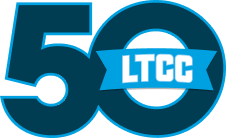California Dream Act Application
The California Dream Act allows eligible undocumented students to apply for state-based financial aid, including Cal Grants, the California College Promise Grant, and other forms of support.
If you’re not eligible for the FAFSA due to immigration status, the CADAA may be the right option to secure financial resources.
Our Financial Aid Office is here to help you complete your CADAA application and maximize your financial aid.
Read LTCC's Statement on Diversity
At LTCC, we are committed to fostering an inclusive environment for all students. Learn more about our values and the actions we take to promote diversity, equity, and inclusion on campus.
Contact Our Financial Aid Team
América Ramírez
Financial Aid Technician
financialaid@ltcc.edu
(530) 830-0081
Office Hours: M–F, 8:00am–4:00pm
Chat Live!
Visit us on CraniumCafe
AB 130 allows students who meet AB 540 criteria to apply for and receive non-state, privately-funded scholarships for public colleges and universities.
AB 131 allows students who meet AB 540 criteria to apply for and receive state-funded financial aid such as institutional grants, or Cal Grants.
Now AB 540 has been expanded with the new SB 68 Bill! SB 68 expands AB 540 to enable students to count years spent at a California Community College and Adult School towards AB 540 eligibility. You can learn more about SB 68 in this info PDF!
If you are eligible based on the above criteria, you may qualify for:
EOPS: Provides above-and-beyond academic, career, and personal counseling; priority registration; additional tutoring; book vouchers to purchase required textbooks; transfer planning; UC and CSU application fee waivers; school supplies (backpacks, notebooks, pens and pencils) and more. You can learn more about the EOPS program HERE!
Cal Grant: Awarded by the California Student Aid Commission (CSAC), may be renewed each year if recipients continue to meet eligibility requirements. All students who are California residents and high school graduates (including AB 540 students) are encouraged to apply. March 2 is the deadline to apply for the next school year. A DREAM ACT application as well as verification of grade point average must be submitted by the deadline. For continuing LTCC students, verification of grade point averages are automatically sent to CSAC in an electronic format for all potentially eligible students.
Equity: Free mentoring services; priority registration; access to the free quarterly textbook lending program; additional counseling services including career guidance and academic planning; free trips to nearby colleges to encourage progression; visits to cultural events and more. You can learn more about Equity HERE!
